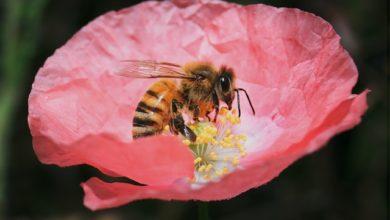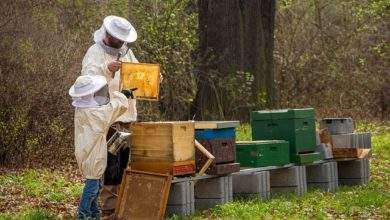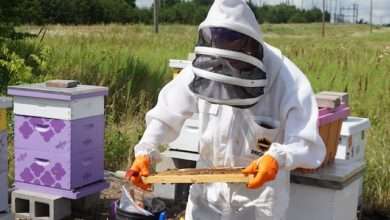What to Expect When Attending Your First Beekeeping Conference
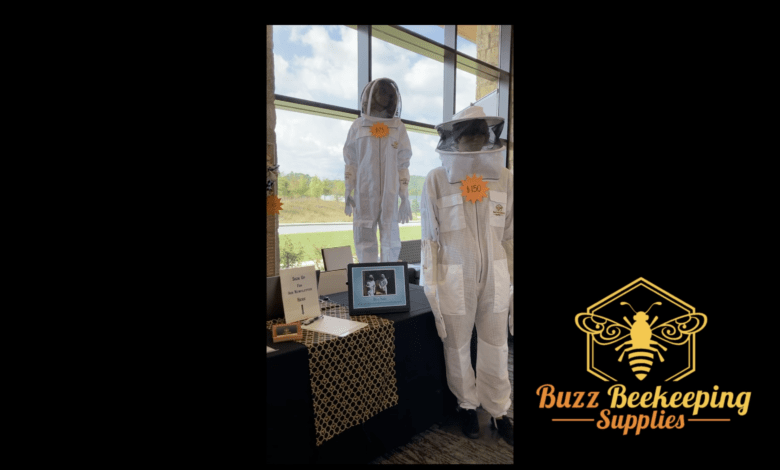
Are you a beekeeper who is considering attending your first beekeeping conference? If so, you’ve probably wondered what to expect and how to take advantage of the opportunity. Keep reading to learn more about what to expect when attending a beekeeping conference.
The Benefits of Attending a Beekeeping Conference
Attending a beekeeping conference is an excellent way to stay informed and connected with other beekeepers.
The benefits of attending a beekeeping conference include:
- Learn about the latest developments in beekeeping: Attending a beekeeping conference provides you with the opportunity to learn about the latest developments and techniques in beekeeping from experts in the field.
- Network with other beekeepers: Attending a beekeeping conference allows you to connect and network with other beekeepers. Whether you’re just getting started with beekeeping or have been doing it for years, there are likely to be other like-minded individuals there who share your passion for beekeeping.
- Workshops and demonstrations: Many beekeeping conferences also have workshops and demonstrations that allow participants to get a hands-on experience with beekeeping techniques and equipment. This is a great way to learn more about beekeeping and hone your skills.
- Source out new equipment: Many beekeeping conferences have vendors selling a wide range of beekeeping supplies and equipment. This is a great opportunity to source out new equipment.
- Participation in the Honey and Artisan Show: Many conferences feature a Honey and Artisan Show, where you can sample homemade honey, beeswax candles, and other beekeeping-related merchandise. At the Honey and Artisan Show, you’ll have the chance to enter your honey, wax, photography, crafts and more in an effort to receive feedback and earn prizes.
Preparations and What to Bring to the Conference
Before attending your first beekeeping conference, there are a few preparations and things you should bring with you.

- Make sure to bring comfortable clothing and shoes: You should always wear comfortable clothing and shoes to a beekeeping conference as you will likely be on your feet a lot. It’s important to wear clothing that you can move freely in.
- Bring basic beekeeping tools and supplies: When attending a beekeeping conference, it is essential to prioritize your safety and protection. Be sure to pack all the necessary protective clothing, including a bee suit, gloves, veil, and any other items that you typically wear when working with bees. Even though you may not be actively working with bees during the conference, it is always better to be prepared and have the necessary gear on hand in case there are any practical demonstrations or field visits.
- You should also bring a few basic beekeeping tools and supplies with you to the conference, such as a beekeeper’s suit, a bee brush and smoker, a hive tool, and a notebook.
- Research the conference topics and speakers: To optimize your conference experience, it is crucial to research and understand the conference agenda. Take the time to review the different sessions and workshops being offered. Identify the ones that align with your specific interests, goals, or areas of improvement. By selecting relevant sessions, you can ensure that you make the most out of your time at the conference, gaining valuable knowledge and practical insights.
- Write down any questions you may have: During the conference, you may come across questions that you weren’t able to research ahead of time. Make sure to write down any questions you may have so that you don’t forget to ask them.
- Business cards for networking purposes: Networking plays a vital role in any conference, including those focused on beekeeping. Pack a stack of your business cards to distribute to fellow beekeepers, speakers, or exhibitors.
- Prepare and bring any entries to the Honey and Artisan Show: One of the highlights of a beekeeping conference is the Honey and Artisan Show. Beekeepers from all around gather to showcase their finest honey products and artisanal creations. Therefore, if you have any exceptional entries to display, now is the time to prepare and bring them to the conference.
Beekeeping Conference Networking Opportunities
Attending a beekeeping conference provides not only valuable knowledge and insights but also unparalleled networking opportunities. With so many like-minded individuals gathered together, it’s the perfect chance to connect with fellow beekeepers and industry professionals.
Attend social events and networking sessions
One of the highlights of any beekeeping conference are the social events and networking sessions. These provide a more relaxed and informal setting for attendees to mingle and get to know each other. Here’s how you can maximize these opportunities:
- Connect with fellow beekeepers and industry professionals: Use these events to strike up conversations, introduce yourself, and exchange contact information. You never know who you might meet – perhaps a seasoned beekeeper with valuable tips or a supplier with the perfect equipment for your apiary.
- Exchange experiences and forge new relationships: Beekeeping conferences attract individuals from different backgrounds and experiences. Take advantage of this diversity by sharing your own experiences and learning from others. Building connections within the beekeeping community can open up doors for collaboration, mentorship, or simply the chance to swap stories with likeminded individuals.
Join online communities and forums
The networking opportunities don’t end when the conference concludes. Nowadays, the digital landscape offers numerous ways to stay connected and continue learning from other beekeepers.
Here’s how you can leverage online communities and forums:
- Utilize social media platforms to interact before, during, and after the conference: Online platforms such as Facebook groups, Twitter chats, and Reddit communities provide avenues to connect with fellow beekeepers even before the conference starts. Engage in discussions, ask questions, and share your excitement. During the conference, these platforms can serve as additional channels for networking, allowing you to connect with speakers, panelists, and attendees.
- Stay connected and continue learning: After the conference, maintain your connections by actively participating in these online communities. Share your progress, seek advice, and contribute to conversations. This not only helps you stay updated on the latest developments in beekeeping but also strengthens your bonds with other beekeepers. Remember, the beekeeping community is a tight-knit one, and supporting each other is key to its growth and success.
Post-conference Reflections and Follow-up
After attending the Beekeeping Conference, it is essential to reflect on the key takeaways and lessons learned, as well as follow up with new contacts and resources.
Reflect on key takeaways and lessons learned
- Review notes and consolidate new knowledge gained: Take some time to go through the notes you took during the conference. Highlight the key points, strategies, and techniques shared by the speakers and presenters. Consider organizing your notes in a way that makes it easier to reference in the future.
- Identify areas for improvement and future focus: Reflect on the topics discussed and think about how you can improve your beekeeping practices. Identify areas where you feel you need to enhance your knowledge or skills. This could be related to honey production, hive management, disease prevention, or any other aspect of beekeeping. Set goals for yourself to focus on those areas.
Follow-up with new contacts and resources
- Send thank-you messages to speakers, new connections, and vendors: Take the time to express your gratitude and appreciation to the speakers who shared their knowledge and experiences at the conference. Send a thank-you email or note, acknowledging their valuable contribution. Additionally, if you made new connections with fellow beekeepers or came across vendors providing useful resources, reach out to them and express your gratitude for their time and insights.
- Continue learning and implementing new skills acquired: Attending the conference was just the beginning of your journey to becoming a better beekeeper. Use the knowledge and skills you gained to continuously improve your beekeeping practices. Stay updated with the latest industry trends, research, and advancements through books, articles, online forums, and discussion groups. Implement the new techniques you learned into your beekeeping routines and evaluate the impact they have on your bee colonies.
Conclusion
Attending a beekeeping conference can be an enjoyable and informative experience. With the right preparation—from what to wear and bring to what to expect—you’ll be able to make the most of your conference experience and enhance your knowledge of beekeeping.
Be sure to take some time to explore the Honey and Artisan Show, where you’ll be able to view and sample products from a range of vendors and beekeeping clubs.
Frequently Asked Questions
Why should I attend a beekeeping conference?
- Attending a beekeeping conference provides an incredible opportunity to expand your knowledge, network with fellow beekeepers, learn about the latest industry trends and techniques, get hands-on experience, and connect with reputable suppliers. It’s an excellent platform to enhance your beekeeping skills and boost your confidence.
How can I find beekeeping conferences near me?
- To find beekeeping conferences near you, you can search online using specific keywords like “beekeeping conference + [your location]” or check with local beekeeping associations and clubs. They often share information about upcoming conferences within the region.
What should I expect at my first beekeeping conference?
- At your first beekeeping conference, expect to attend informative and engaging seminars and workshops conducted by experienced beekeepers and industry experts. You can participate in hands-on activities, explore vendor booths offering beekeeping equipment and supplies, and meet fellow beekeepers to exchange ideas and experiences.
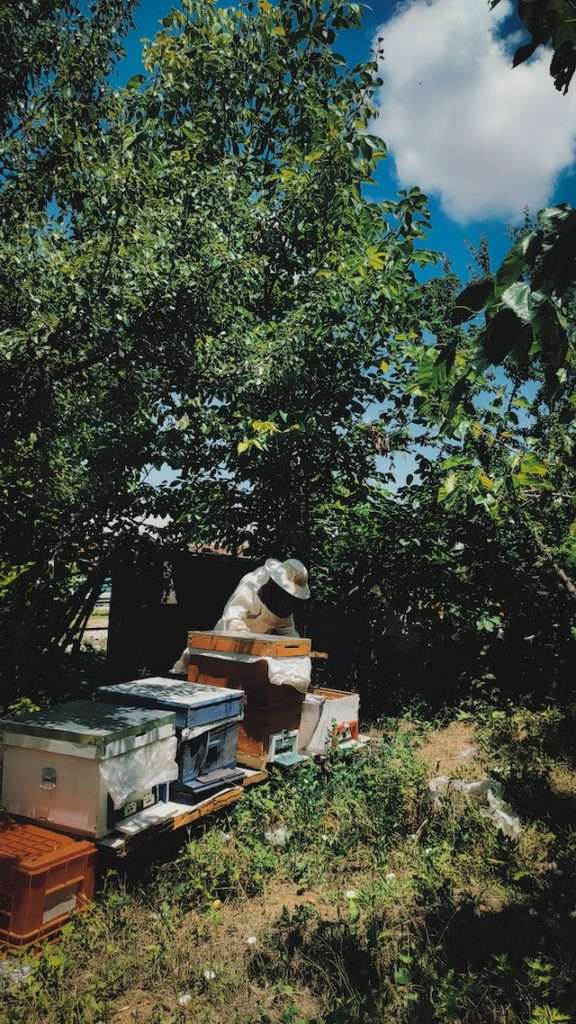
Is there a registration fee for beekeeping conferences?
- Yes, most beekeeping conferences require registration fees to cover event organization costs, venue expenses, and speaker fees. The registration fees vary depending on the conference’s duration, location, and included activities. It’s advisable to check the conference’s website or contact the organizers for specific details regarding registration fees.
Can beginners attend beekeeping conferences?
- Absolutely! Beekeeping conferences welcome beekeepers of all levels, including beginners. These conferences often offer sessions specifically tailored to beginners, guiding them through the fundamentals of beekeeping, hive management, and bee health. Attending a conference as a beginner can be an extremely educational and inspiring experience.
Will I have the opportunity to ask questions at the conference?
- Yes, most beekeeping conferences allocate time for Q&A sessions where attendees can ask questions to the speakers or panelists. Additionally, many conferences organize informal networking sessions or forums where you can engage in discussions and seek advice from experienced beekeepers.
Are beekeeping conferences suitable for children?
- While beekeeping conferences primarily cater to adult participants, some conferences may provide activities or workshops suitable for children or teenagers interested in beekeeping. It’s advisable to check with the conference organizers beforehand to determine if there are specific programs for young attendees.
Can I purchase beekeeping equipment or supplies at the conference?
- Yes, beekeeping conferences often have vendor booths or exhibition areas where you can browse and purchase various beekeeping equipment, supplies, and related products. It’s an excellent opportunity to explore different brands, compare prices, and make informed purchase decisions.
